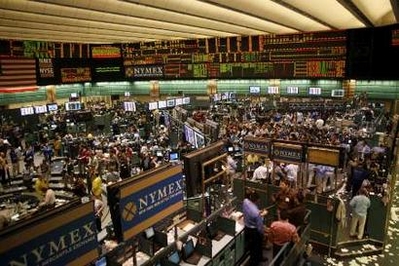How to make money in a slowdown
(Agencies)
Updated: 2008-02-27 23:21
Updated: 2008-02-27 23:21
LONDON - As a US-led economic slowdown preys on global markets, should investors attempt to "recession-proof" their portfolios?
 Traders work in the oil futures pit of the New York Mercantile Exchange in New York, February 22, 2008. [Agencies]
|
Calling a recession in the US is the responsibility of the National Bureau of Economic Research, but against the backdrop of a downturn in the housing market, weak consumer spending -- the driving force behind the US economy -- and equity market volatility, some analysts believe one could already be under way.
Liz Ann Sonders, chief investment strategist at broker-dealer Charles Schwab, is among them.
"If we get a recession, even if it's relatively mild, it will probably be longer than normal," she says.
"It's likely to take longer to recover even from a soft landing, as it's easier for businesses to regroup quickly (a la 2001 recession) than consumers, the drivers of today's weakness.
"To put it in visual terms, I expect this cycle to look like a fat lower-case 'u' versus the more normal and recent tall upper-case 'V'."
While some experts believe that booming emerging economies are no longer dependent on the US to drive growth, a phenomenon known as "decoupling", others think the old adage that when America sneezes, the rest of the world catches a cold, still rings true.
Even after the recent growth of the booming BRIC (Brazil, Russia, India, China) economies, America remains a $9 trillion economy, while China's economy comes in at $1 trillion and India at $650 billion.
Chinese total spending is still about 10 percent of that of the US, while the equivalent figure for India is just 6 percent.
So, what is the outlook for the global economy, and where could investors turn to hedge against recession and falling markets?
We asked a panel of experts:
|
|
|
||
|
||
|
|
|
|

